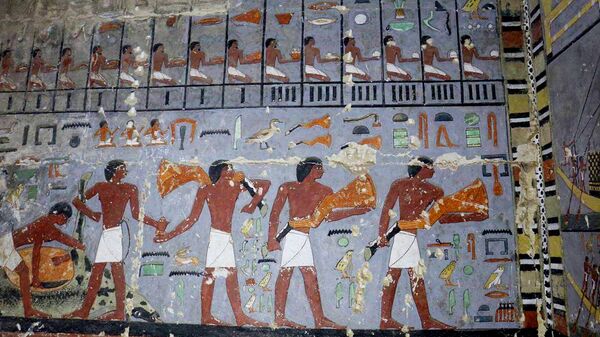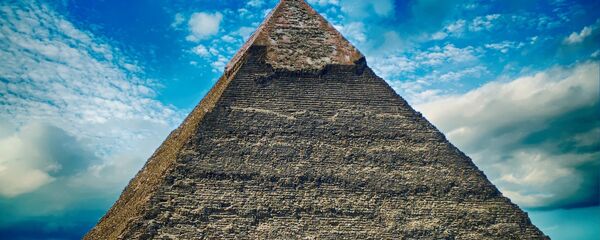Egyptian archaeologists continue to surprise by making yet another discovery that may shed light on the New Kingdom period, which lasted from the 16th century BC to the 11th century BC. A group of local scientists uncovered an ancient funerary temple dedicated to Queen Neith and 50 coffins that date back to 3,000 BC. According to a statement released by Egypt's Ministry of Tourism and Antiquities, this is the first time scientists have discovered coffins at the Saqqara necropolis dating back to that period and thus are considered one of the most important archaeological findings to date.
The coffins discovered in burial shafts at depths of 10 to 12 metres, are "anthropoid" and are decorated with scenes depicting gods that were worshipped during the New Kingdom period as well as excerpts from the Book of the Dead, an ancient funerary text, which ancient Egyptians believed helped the deceased during their journey to the other world.
Scientists also found a 4 metre-long papyrus, a shrine dedicated to Anubis, the god of death in ancient Egypt, funerary masks, a large number of statues depicting deities such as the god of fertility, agriculture, and life Osiris.
According to the Ministry of Tourism and Antiquities, the discovery of ancient coffins confirms the existence of numerous workshops that made the funerary boxes bought by locals.
The development comes three months after local archaeologists discovered almost 60 mummies in the Saqqara complex and two months after scientists unearthed more than 100 sarcophagi. At the time, Minister of Tourism Khaled al-Anani predicted that more exciting findings would be made by local scientists and it seems he was right.
Later this year, Egyptian authorities plan to open the Grand Egyptian Museum. Described by local officials as the largest archaeological museum, it will showcase well-known items such as the Tutankhamun collection as well as new findings discovered in recent years.


